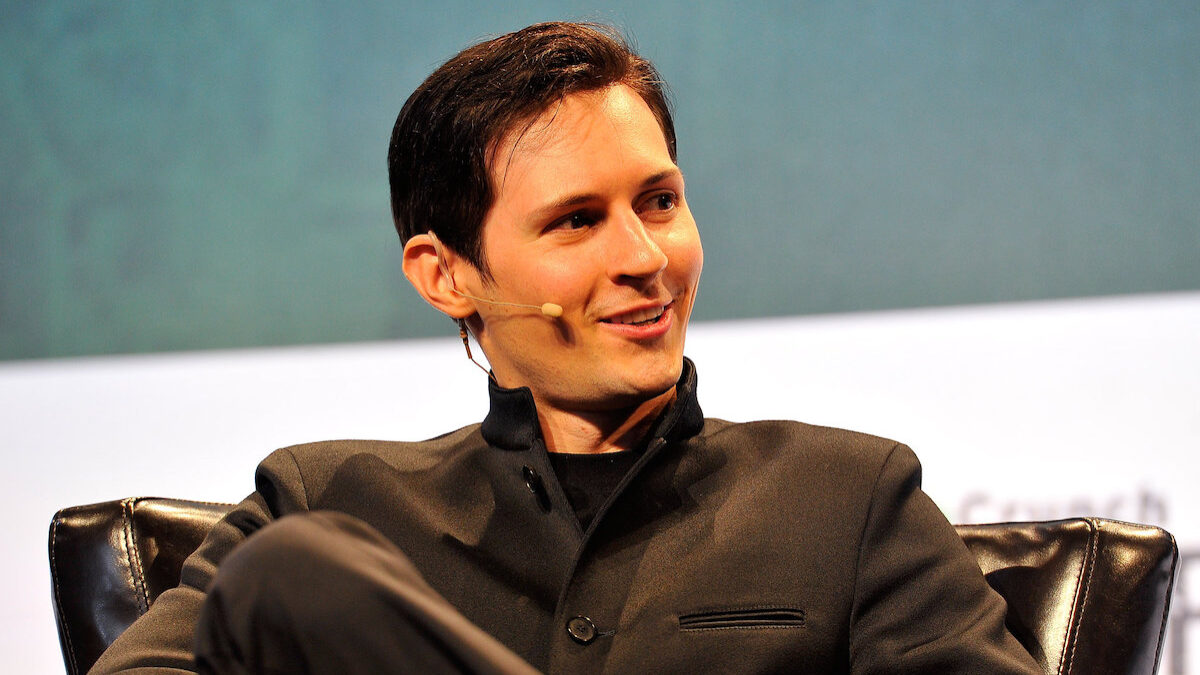
David French is fed up with warrior princesses. There are just way too many of them. His recent send-up of “feminist ferocity” laments the rash of butt-kicking heroines who (as he sees it) implicitly denigrate homemakers’ life choices.
I like homemakers. I don’t think it’s especially important to cultivate “fierceness” in girls. Even so, I think French and others should relax about the tough-girl heroines. If you don’t like them, don’t watch, but making a cosmic issue of it is a little paranoid. That reaction also leads us into a quagmire of hard questions. If we’re not supposed to like fierce female characters, how should we feel about actual fierce girls?
If French and I were to have a friendly chat about men and women, we would surely agree on a great many points. I’m all for raising boys as boys, and I also happen to share French’s view that women are basically unsuited for soldiering.
Men offer their bodies for the common good when hostile forces must be repelled. Women offer their bodies for the sake of perpetuating human life. So it has ever been, and should be. As the mother of four boys, I accept the second of these responsibilities for myself, and take seriously the necessity of instilling the first into my sons.
I’m still okay with the “fierce girl” fantasies. Partly, this just seems to be an over-reaction. Based on some movie characters, a television commercial, and a Wall Street “fearless girl” statue, French concludes that liberals are “crafting girlhood into stereotypical boyhood” and “going to extreme lengths to give girls that boyish fighting spirit.”
Are these really “extreme lengths”? To me, they seem pretty mild. If girls were being dragged to Spartan-like “warrior camps” while tea sets and tiaras were snatched off the shelves, I’d agree that was extreme. When toddler girls are forced to watch “Braveheart” until they join the guttural yells, I’ll gladly help sound the alarm. Here, though, we’re talking about a statue and some fictional characters. If that’s alarming (and degrading to homemakers) I have to wonder: is any indulgence of the tough-girl fantasy permissible, or are fierce girls just universally pernicious?
What Dreams May Come
For those living in a gender-addled age, overreaction is always tempting. I perfectly understand the impulse to stand in the path of mainstream culture shouting, “Boys and girls are different!” They are, but we need to be careful. Oversimplification can easily become fuel for eager gender-benders.
As I see it, tough-girl characters are mostly variations on a time-honored theme: Women fantasizing about succeeding in competitive and traditionally masculine realms. We’ve been through this plenty of times before, from Buffy to Xena to “Brave” Princess Merida. Men often find this disconcerting, as do traditionalists of both sexes. It’s important to understand, though, that this isn’t just a feminist thing. There have always been girls who daydreamed about beating the boys at their own game.
In girlhood, I logged plenty of hours pondering the appropriateness these tough-girl fantasies. I pondered as I lay awake at night, mentally inserting myself into epic fantasies and suspense thrillers. (No, I was not the rescuee.) I pondered as I imagined myself saving the day for my Denver Broncos, leading the charge after John Elway fell prey to a devastating last-second injury.
In my early teens, my family spent several months in Scotland, fueling an imaginary alliance with Bonnie Prince Charlie and his rugged highlanders. I did wonder whether it was okay for a girl to relish such fantasies. For that reason, I mostly kept them to myself. But still, I kept them.
I wasn’t delusional. I knew women can’t play in the NFL. Also, dragons are not real, and it’s been game over for Bonnie Prince Charlie for more than two centuries. So what, though? Fantasies are fantastical; that’s what makes them fun.
Some traditionalists would surely frown on these girlhood tendencies (imagination be damned). Many feminists, for their part, would find it heartbreaking that I felt compelled to keep my fantasies secret. I disagree with both groups.
To be sure, daydreams have aspirational elements. Even understanding that I couldn’t grow into an NFL quarterback, that fantasy gave imaginative life to some kind of real-world yearning (which presumably had something to do with competing successfully in more masculine settings). I think it was healthy to explore the contours of that aspiration as a child, in the safe and unbounded world of imagination. I also think it was healthy to spend time pondering the question: what kinds of goals would actually be appropriate for me as a woman?
Girls and Boys Face Different Life Challenges
Most historical societies have granted women somewhat greater license to push the boundaries of their gender-specific roles. It’s typically better to be a fierce girl than an effeminate boy. There are reasons for that.
To be born male is to be born with a rich array of physical and rational gifts, which have any number of possible applications and thus no obvious, particular one. The goal, as the boy matures, is to narrow the field of possibilities and prove himself capable of a more particular social contribution. The effeminate boy causes consternation to his parents because a boy is not capable of duplicating the woman’s most characteristic contribution. He can be a great many valuable things (a warrior, a scholar, a builder, an explorer, and so forth), but he cannot be a mother. That’s why most societies have very definitely not wanted their boys to be girlish.
A girl faces a different set of challenges. She is born with a blessedly burdensome biology, and a rational mind. Most likely she is slower, weaker, and less coordinated than her brothers. That is, in some sense, the price of one truly remarkable capacity that she does have: the ability to nurture nascent life in her very body. This is a beautiful thing, which we should encourage girls to embrace.
She also has a distinct advantage over her brothers in that she doesn’t need to distinguish herself in some rarified field in order to prove her social value. Physiologically, she was built for maternity, and maternity is precious. At the same time, that blessing can seem extremely burdensome at times, when she as a rational person is drawn to goals and excellences that her body is under-equipped to pursue. Femininity can seem especially onerous in a woman’s reproductive years, when the biological burden is heaviest.
Although her physiology may point her towards a particular social role, the girl’s rational imagination is freer. It may wish to roam where the body cannot. She can admire the explorers, warriors, and prophets of history and legend. She can be excited by feats of daring or awesome displays of athleticism. This is not a rebellion against femininity.
A girl, after all, is a rational creature; as such, it is not contrary to her nature to admire the full range of human excellences. Gracefully navigating this interplay between (burdened) body and (less-burdened) mind is itself an aspect of the feminine experience, and necessary component of mature womanhood.
Try to Understand Competitive Females
Without question, some girls are more inclined than others to struggle with the burdensome aspects of the female physiology. Donna Reed’s interests and talents seemed well suited to the domestic sphere, so it was comparatively easy for her to flourish as a wife and mother. For Eowyn of Rohan, the challenges were more considerable; her domestic bliss was secured only after some battlefield heroics, and only through a marriage to a sympathetic gentleman-warrior. Representing half the human race, women can differ quite a lot from one another, and we should probably make our peace with that.
For the “fiercer” members of the fair sex, fighter-girl fantasies may naturally hold a lot of appeal. This creates discomfort for some people, especially traditionalist men. They are irked by the unreality of the fighter fantasy. We can acknowledge its fantastical elements, and still appreciate that some girls may need the imaginative freedom to explore that gap. Fantasizing about “the body unbound” can be a natural stage of the maturation process, which may culminate in a healthy channeling of competitive impulses in some more appropriate direction. If you don’t happen to be a competitive girl, feel free to change the channel. Try not to judge too hastily, though.
Why do girls get to push the boundaries more than boys? Physiologically, there is a fundamental asymmetry between them. Boys are presented with a huge range of open possibilities that they need to narrow. Girls are physiologically directed towards a far more specific role, which may however be unpleasantly limiting for them as rational beings. A healthy society does ask women to assume the relevant burdens, because it’s vitally necessary, both for them and for society. (The world must be peopled, but also, maternity is richly rewarding, and a fundamental aspect of fulfilled femininity.)
At the same time, as compensation for the sacrifices women make, a healthy society permits and encourages them to break out a little from a strictly domestic role, as opportunity allows. In our wealthy and long-lived society, there can be quite a lot of opportunity, even for women who fully embrace their fertility. Childhood experimentation (whether it takes the form of a “tomboy” phase, or just an imaginative flirtation with fierce-girl roles) can be a girl’s way of figuring out what is and is not genuinely possible.
Give the Girls a Break
Cleaning out my attic some years ago, I ran across a sixth-grade essay in which I was asked to imagine my life at age 30. What did I anticipate? My prediction read more or less like a 1950s sitcom. I saw myself packing school lunches and searing off roasts. That was the role most women played in my childhood (Mormon) community, and it sounded fine to me. As best I can recall, that essay was written at the height of my imaginary NFL career.
I never became John Elway, and I never quite became Donna Reed either, but my actual adult life is a somewhat-plausible amalgamation. I never joined up with marauding Scottish highlanders, but I did join the Peace Corps and travel across Central Asia. I never rubbed shoulders with elite athletes, but I did spar with elite scholars, in a discipline (philosophy) famous for its bruising intellectual combativeness.
Today I spend most of my hours at home with my four kids, but I also write social and political commentary, attend conferences, and do some public speaking. Would adolescence have been less confusing if I had been clearly and unambiguously drawn to a more circumscribed social role? Yes. Was it still possible to embrace maternity in a way that suited my talents and temperament? With the help and guidance of supportive adults, it was.
I never suited up for the Denver Broncos, but there is a real sense in which that girl is still alive today. She’s grateful that she was afforded the space to explore imaginatively what it could mean to be feminine and fierce.









